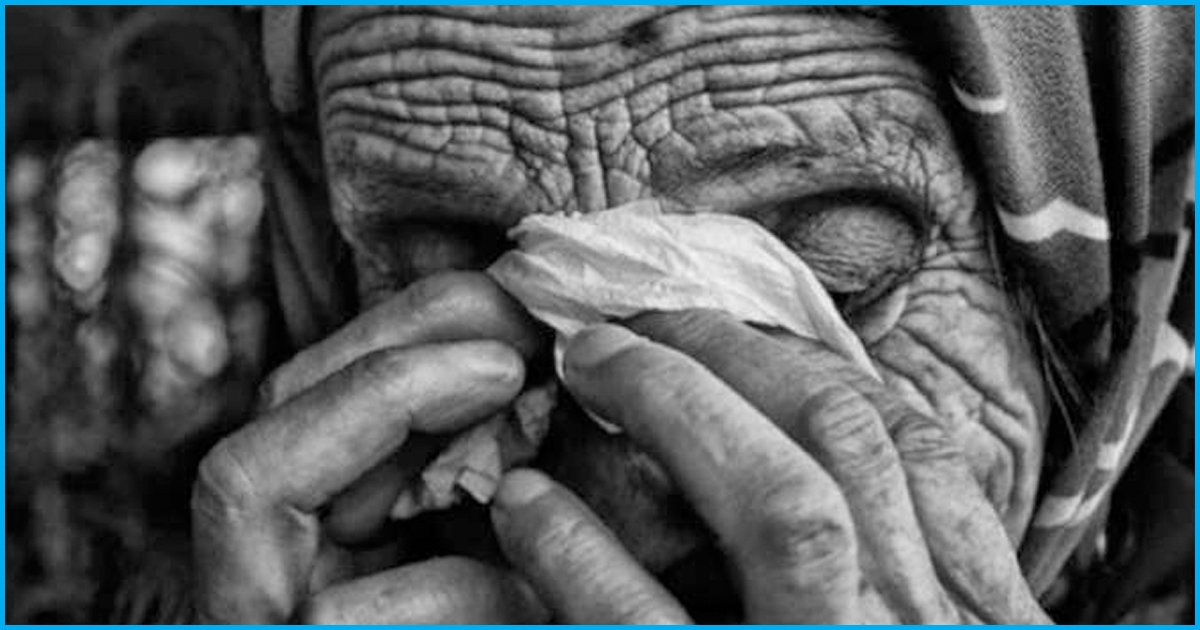
77-Year-Old Woman In TN Denied Pension For Not Dressing Like A Widow
16 April 2018 9:04 AM GMT
The little red dot adorning the forehead along with vermillion is the conventional and acknowledged identity of the Hindu married women. Few do it by choice, few do it in the name of tradition, few have faith in its symbolism, and few choose not to apply the red dot or vermillion.
A 77-year-old grieving widow in Chennai was shamed and denied pension by the concerned authority for wearing a pottu (red bindi) thus, not ‘looking like a widow’.
Rajesh and Jayshree (names changed for protecting their identity) had been life partners for over 40 years. Rajesh passed away at the age of 82, little over a month ago. On April 9, Jayshree, accompanied by her son and daughter-in-law, went to the settlements wing of the Electrical and Mechanical department, her husband’s former place of employment, regarding transfer of pension. The official in charge, Ravi, was allegedly asleep on duty and on being woken up, glanced at the photograph and refused to oblige further.
Jayshree’s daughter-in-law Madhuri told The News Minute, “we gave them the forms that they required, my mother-in-law’s identity proof, and a photo of hers that was taken four months back. However, he took one look at her and then at the photo and refused to accept it.”
On being questioned, the official allegedly replied that as Jayshree is a widow, she is not supposed to wear a pottu and should get another photo taken with only sacred ash (vibhuti) applied on her forehead. 34-year-old Madhuri, enraged by this insensitivity towards her mother-in-law, told the The News Minute, “he asked how a widow could come to the office looking like this.” She adds, “when we tried to reason with him, he told us to bring her ration card, which was initially not even a requirement. We told him that she is old and can’t keep coming to the office, but he did not care. He refused to take her fingerprints or even begin the process to transfer pension.”
Imagine the grief over losing your life partner and then being reminded of your loss over and over every time you look in the mirror. Madhuri recalls how distraught her mother-in-law was as she removed the pottu which had adorned her forehead for over 40 years and had become a part of her. Madhuri adds, “what is worse is that she now believes that she is in the wrong for choosing to wear the sticker potty when her husband died. The officer made her feel ashamed of what she did.”
The grieving family returned the next day with the new photograph and the ration card. The official, Raju, was on leave that day and they managed to get the process completed. However, when they tried to complain about the harassment, a senior accounts officer reportedly advised them to ‘adjust’ because this is how they (the officials) are. Realising the pointlessness of the written complaint, Madhuri chose not to file one in the end.
The Logical Indian take
The elderly woman’s treatment by the official shows our patriarchal society’s treatment of women i.e. as mere objects. As an object may not have any intrinsic value other than the value given by us, a woman in a patriarchal society is recognised solely by her relation to a man. A daughter, a sister, a wife but never an individual in her own right. The severity of the enforced customs vary but traditionally a widow can’t wear new clothes or even old clothes if not of white or drab colours, can’t apply makeup or wear jewellery, can’t be in front of celebrations as she is seen as a bad omen and in effect, is shunned by society, friends and family alike. Things are changing because of education, financial independence, and urbanisation but the roots of patriarchal traditions run deeper than most. According to an article in the Scroll, cases of ‘Sati’ and glorification of being burned alive at the husband’s funeral pyre are still found in India.
Another important aspect is that sensitivity training should be made mandatory for public officials, along with setting up of a robust grievance redressal system. Some states and departments have made progress, but more often than not, a common person is at the mercy of the government official’s empathy or lack thereof.
 All section
All section













